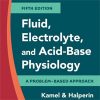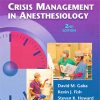Age and Associated Outcomes Among Patients Receiving V-A ECMO
link.springer.comIn a multinational study using the ELSO Registry, we found that increasing age was strongly associated with higher risk of hospital mortality and complications among patients receiving V-A ECMO for cardiogenic shock, with differences emerging as early as 40 years of age.
Even among relatively younger patients, clinicians should consider the prognostic importance of patient age in decisions surrounding initiation and cessation of V-A ECMO.
We included 15,172 patients receiving V-A ECMO. Of these, 8172 (53.9%) died in hospital.
For the analysis conducted using weakly informed priors, and as compared to the reference category of age 18–29, the age bracket of 30–39 (odds ratio [OR] 0.94, 95% credible interval [CrI] 0.79–1.10) was not associated with hospital mortality, but age brackets 40–49 (odds ratio [OR] 1.26, 95% CrI: 1.08–1.47), 50–59 (OR 1.78, 95% CrI: 1.55–2.06), 60–69 (OR 2.24, 95% CrI: 1.94–2.59), 70–79 (OR 2.90, 95% CrI: 2.49–3.39) and ≥ 80 (OR 4.02, 95% CrI: 3.13–5.20) were independently associated with increasing hospital mortality.
Similar results were found in the analysis conducted with an informative prior, as well as between increasing age and post-ECMO complications.

















